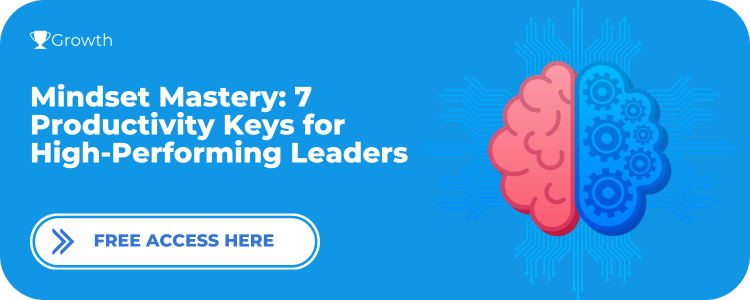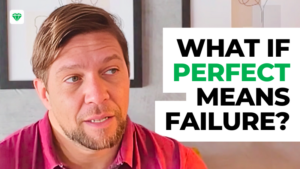✅ FREE ACCESS: Mindset Mastery: 7 Productivity Keys For High-Performing Leaders
Could centuries-old scientific laws be the missing puzzle piece in transforming your life and business efforts from ordinary to extraordinary?
Well, stick around because today we’re going to learn how Parkinson’s Law, Pareto’s Law, and Newton’s Laws can be used as secret weapons to tripling your productivity as an entrepreneur.
But before we get into it, make sure you grant your lifetime access to our free WorkBook: Mindset Mastery: 7 Productivity Keys for High-Performing Leaders.
This is your chance to make the mindset shift you need to bring your goals into reality based on the 7 mindset keys of the 1% of top-performing leaders.
How Timeless Scientific Laws Can Elevate Your Entrepreneurial Success
Imagine unlocking the secrets of timeless scientific laws that have guided the universe and harnessing their power to navigate the complexities of your entrepreneurial journey.
As we dive deeper into these intriguing insights, you’ll find that the same laws governing motion, distribution, and time can serve as a compass guiding you toward exceptional levels of productivity, efficiency, and accomplishment.
Let’s unravel the mysteries of Parkinson’s Law, Pareto’s Law, and Newton’s Laws, as we navigate through their implications for your productivity and success.
Hack #1: Parkinson’s Law
The first of the 3 Scientific Time Saving Hacks For Entrepreneurs is Parkinson’s Law.
Parkinson’s law states that the amount of work expands to fill the time available for its completion.
That is, the tension of doing any task relates to the time available to complete it.
For example, you would complete a task in one day if you had that amount of time available.
But, you would complete that same task in one hour if you only had that time available.
That is not karma, it is a psychological effect that happens for 3 reasons:
- If you have more time, you can add complexity to tasks.
- If you have more time, you can deprioritize tasks.
- If you have more time, you can procrastinate and still complete tasks on time.
Working long hours is not proof of productivity. It can mean quite the opposite.
Here is an example:
- 2 team members have the same task.
- The first one completes it in 1 hour.
- The second one completes it in 5 hours.
If we don’t consider Parkinson’s Law in the equation, we tend to see only the fact that the second team member worked more.
But comparing time against work, we know that the first team member was more productive.
How to set the right time for the right tasks? By asking yourself these 3 questions:
- What is the most important task of today (big win)?
- What are the milestones to achieve that?
- What time do I need to complete every milestone of that task?
The order of tasks should follow their level of impact.
The more they impact the overall results, the higher the priority, then move downhill.
That will increase deliverability (results) and boost your sense of accomplishment (motivation).
Hack #2: Pareto’s Law
The second of the 3 Scientific Time Saving Hacks For Entrepreneurs is Pareto’s Law.
Pareto’s Law states that 80% of effects come from 20% of causes.
This idea emerged when Wilfredo Pareto observed that 20% of pea pods in his garden produced 80% of the peas.
He later applied the same logic to land distribution and found that 20% of the population owned 80% of the land.
What Pareto observed was the outside shell of a deeper natural phenomenon.
The number of assets is always greater than the results achieved from those assets.
Here are some business lessons we can derive from Pareto’s Law:
- 80% of sales come from 20% of customers.
- 80% of income comes from 20% of products and sales.
- 80% of problems come from 20% of sources.
Which productive course of action do you think we should follow from this observation?
We should focus our energy on those inputs that provide higher outputs.
But how do we identify them? By using an Eisenhower Matrix.
In the Mindset Mastery Workbook, you will learn what an Eisenhower Matrix is and a step-by-step process to prioritize tasks based on this framework.
By granting your free lifetime access to this workbook today, you will not only master the art of task prioritization now but also, have access to all future updates at no cost.
Hack #3: Newton’s Laws
The third of the 3 Scientific Time Saving Hacks For Entrepreneurs is Newton’s Laws.
Isaac Newton’s 3 Laws of Motion states that a body in a given state tends to remain in that state. We call that “Inertia.”
The first law: “Every body continues in its state of rest or motion unless it is forced to change that state.”
The Second Law: “The change of motion is proportional to the force impressed.”
The Third Law: “To every action, there is always an opposed and equal reaction.”
The takeaway from these laws is the idea that things tend to remain in their original state.
The good news is, once we get into motion by engaging in productive actions, we tend to keep that going.
That movement becomes inertia.
The challenge lies in the amount of energy needed to change any given state.
- Starting good habits takes more effort than keeping them.
- Stopping bad habits takes more effort than keep avoiding them.
The problem is the lack of energy to transform the habits.
So, what is the application we should take based on Newton’s Laws? The relationship between motivation and discipline.
Buying books and reading books are completely different hobbies.
That’s the difference between motivation and discipline.
Discipline can take you places that motivation can’t.
Motivation
Motivation is triggered when you get somewhere. Motivation is not a cause. It is the consequence.
That’s why people that rely on motivation are forever stuck in the planning stage of things.
That leads us to discipline.
Discipline
Discipline is the ability to do the things you told yourself you would. It’s to obey your own rules and commands.
As an ability, we learn discipline by inputting time and energy into the desired habit we want to develop.
That will create inertia or the habit of keeping that movement going.
We, humans, have always adapted to the environment. We have the natural capacity to become what we need under the right circumstances.
Discipline relies on a decision. You don’t have to feel anything. That’s why it is reliable. It’s not easy. That’s why it is powerful.
In the book Atomic Habits, James Clear pushes forward the idea of replacing willpower with disciplined behavior, which he also calls – systems.
He says:
“Goals are about the results you want to achieve. Systems are about the processes that lead to those results”.
A disciplinary system that puts you on productive inertia is the way to transform goal-setting into results.
Once you train to obey your own commands, you will be unstoppable.




